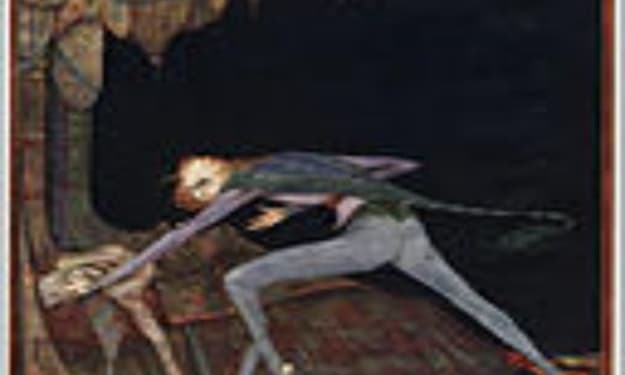The Haunting of Hill House" by Shirley Jackson (1959)
The Haunting of Hill House: Unraveling the Labyrinth of Psychological Terror

Shirley Jackson's "The Haunting of Hill House" is a timeless masterpiece that has cemented its place as one of the most influential and enduring works of horror fiction. Published in 1959, Jackson's novel has inspired many adaptations, including movies and popular television series, all of which have demonstrated its lasting impact on the genre. kind of horror. The story is a delicate blend of psychological horror, supernatural elements and a deep exploration of the human soul, creating a creepy atmosphere that lingers in the reader's heart long after the last page.
The story revolves around Hill House, an imposing mansion with a dark history of tragedy and death. Dr. John Montague, a paranormal investigator, gathers a group of individuals with varying degrees of sensitivity to the supernatural to spend time at Hill House and record every event. Characters include Eleanor Vance, a shy and lonely young woman; Theodora, a flamboyant and non-conformist artist; and Luke Sanderson, heir to Hill House.
As the characters converge on Hill House, they find themselves caught in a nightmarish web of obsession and terror. Shirley Jackson's storytelling genius lies in her ability to create an atmosphere of fear and suspense without relying on explicit gore or traditional horror tropes. Instead, she uses the psychological nuances and unsettling atmosphere of Hill House to evoke fear. The first paragraph of the novel sets the tone with its iconic first lines: “No living creature can continue to exist healthy for long under conditions of absolute reality; Even larks and katydids are believed by some to have the ability to dream. "
Eleanor Vance serves as the novel's focal point and her perspective becomes the lens through which the reader experiences the events that unfold. Eleanor, who has spent most of her life caring for her disabled mother, sees the invitation to Hill House as a liberating opportunity. Her complex psychological state, marked by a mixture of vulnerability and hidden strength, makes her a convincing and unreliable narrator.
Theodora, or Theo, opposite Eleanor is a bold and charismatic character. His playful and mysterious nature creates an intriguing dynamic within the group. The relationship between Eleanor and Theo takes center stage, adding layers of tension and ambiguity. Their connection is imbued with a blend of camaraderie, rivalry, and a subtle undercurrent of attraction, adding to the story's psychological underpinnings. The heir to Hill House, Luke Sanderson, offers a skeptical and realistic view. As the parent of the house, he initially dismissed supernatural claims surrounding Hill House. Luke's presence introduces a pragmatic counterpoint to the more psychologically complex characters, contributing to the diversity of group dynamics.
Dr. John Montague, the researcher behind the experiment, brings a scholarly and rational attitude to the team. Its goal is to record and research supernatural phenomena that may occur in Hill House. Despite his scientific approach, Dr. Montague became a conduit to the unfolding horror and his presence added power to the disturbing events. Hill House itself emerges as a character in its own right, a malevolent force with a sinister streak. Jackson masterfully describes the architecture and layout of the mansion, giving it an eerie and claustrophobic atmosphere.
The disturbing nature of Hill House is heightened by its dark history, which includes tragic deaths and mysterious events. The house becomes a metaphorical maze of the mind, with winding hallways and hidden secrets that reflect the characters' deepest fears. One of the novel's strengths is Jackson's use of language and symbolism. She uses delicate, evocative prose to convey the psychological states of her characters and the haunting atmosphere of Hill House. Descriptions of seemingly mundane details take on sinister meanings, creating an atmosphere where ordinary things are filled with horror.
Jackson's mastery of language allows him to explore the complexities of the human soul with poetic and chilling elegance. The structure of the novel is remarkable, with tension gradually building and a climax that is psychological rather than overtly supernatural. Jackson uses a non-linear narrative that combines current events at Hill House with flashbacks and introspective passages, providing insight into the characters' backgrounds and motivations.
This narrative approach reinforces the sense of unease, as the reader is left in suspense about the true nature of Hill House and the psychological outcome of the characters. Eleanor's interior monologues and stream-of-consciousness passages offer a window into her troubled mind. As supernatural events increase, Eleanor finds herself increasingly entangled in the mystery of Hill House. Jackson skillfully blurs the lines between Eleanor's perceptions and the supernatural, causing readers to question the story's credibility. Eleanor's internal struggles with identity, belonging, and desire for acceptance add to the psychological horror at the heart of the story.
About the Creator
Enjoyed the story? Support the Creator.
Subscribe for free to receive all their stories in your feed. You could also pledge your support or give them a one-off tip, letting them know you appreciate their work.





Comments (1)
. This is one of the most well-written horror stories I've ever read.